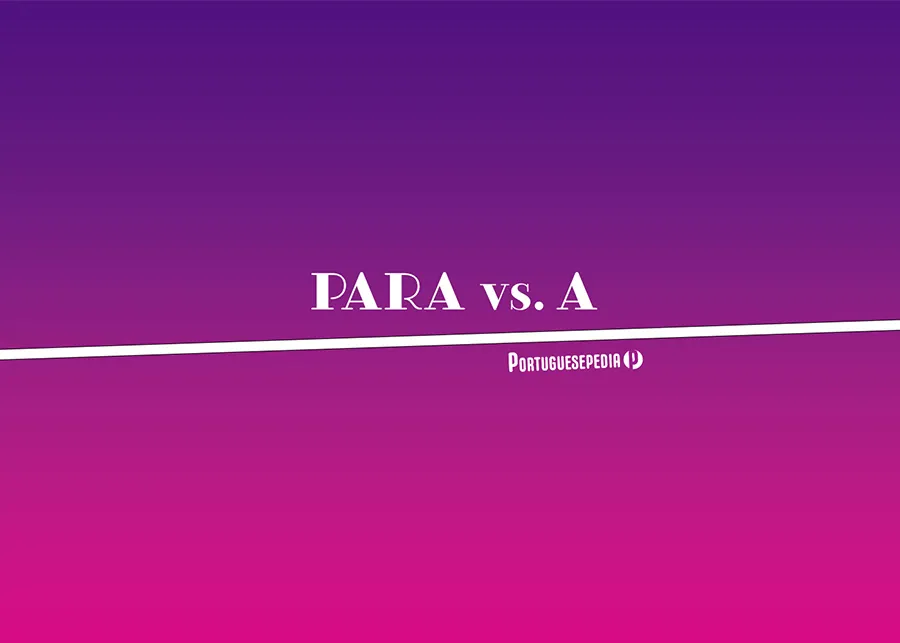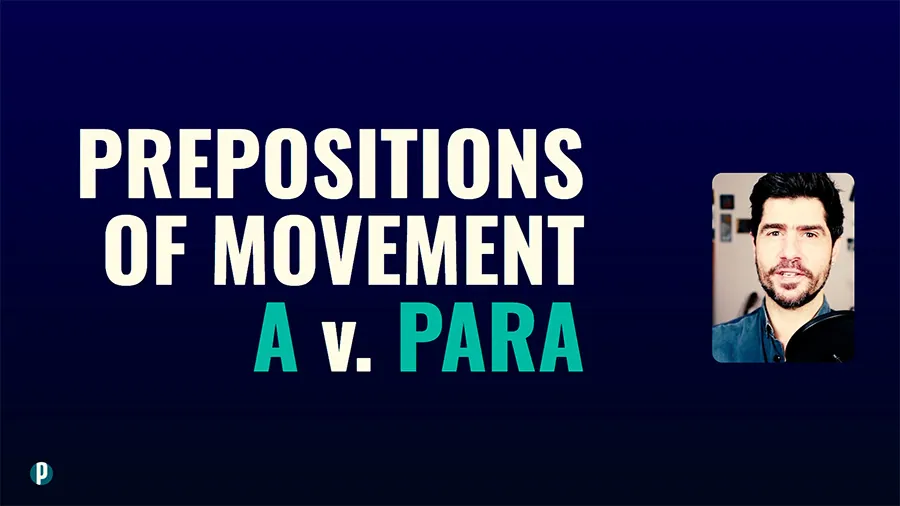
Portuguese Prepositions ‘Para’ vs. ‘A’: Know When to Use Either
Language learners often struggle to discern between the prepositions a and para, especially when both are used as prepositions of movement.
So, what’s the difference between the Portuguese prepositions a and para?
The preposition a suggests a round-trip movement with a relatively short stay at the destination. Para on the other hand implies a one-way motion and, consequently, a longer stay at the place of arrival.
Here’s a simple example:
| (1) Eu vou a Portugal de férias. Fico lá duas semanas. I am going to Portugal for the holidays. I’ll stay there for two weeks. (2) Eu vou para Portugal. Arranjei lá um emprego. I am going to Portugal. I got a job there. |
As you can see above, the first sentence suggests a relatively short stay compared to the second. Also, the first sentence lends itself well to the notion of a 2-way movement as opposed to the unidirectional motion suggested by the last one.
Now, what constitutes a short or long stay is, of course, relative to the context. Look at this second example:
| (1) Eu vou ao restaurante. Estou farto de comer em casa. I am going to the restaurant. I am tired of eating at home. (2) Eu vou para o restaurante. Hoje, faço o turno das 9h às 15h. I am going to the restaurant. Today, I am doing the 9 a.m. – 3 a.m. shift. |
Now we have a different time frame. Still, within this context, you can discern between the shorter stay of the guest in sentence 1 and the longer stay of the cook in sentence 2.
This time-frame nuance is, I believe, what most confuses language learners. Besides, these prepositions are used beyond denoting movement. Read on.
Learn more about other Portuguese prepositions: Portuguese Prepositions and Their Contractions: An In-Depth Usage Rundown.
a
Contractions
a + definite articles
| definite articles | o | a | os | as |
| contracted forms | ao (a + o) | à (a + a) | aos (a + os) | às (a + as) |
a + demonstratives
| that over there | aquilo | aquele/s | aquela/s |
| contracted forms | àquilo (a + aquilo) | àquele/s (a + aquele/s) | àquela/s (a + aquela/s) |
Learn more about Portuguese demonstratives: Portuguese Demonstrative Pronouns and Determiners.
Usage

Olá! I'm Pedro and I'm your Portuguese teacher.
Ready to unlock the beauty of European Portuguese? Portuguesepedia is your key! This all-in-one platform provides a wealth of learning resources, from bite-sized video lessons to immersive idiomatic dips. Perfect your pronunciation and aural comprehension with listening drills and solidify your grammar with in-depth articles. Start your Portuguese journey today!
Share this article
Get my guide "Key Strategies to Learn Portuguese" for FREE.

